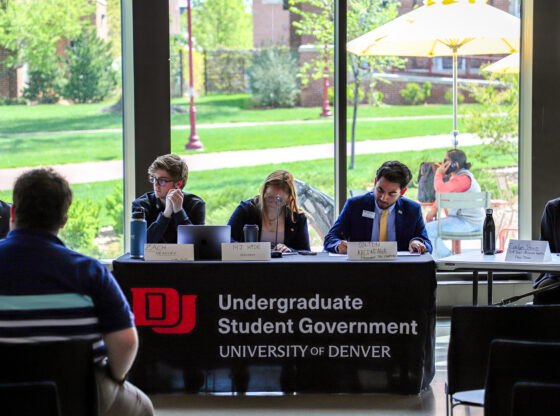Ten DU professors have expressed their support of Initiative 300, a ballot proposal to give workers one hour of sick leave for every 30 hours worked, with an open letter to the Chamber of Commerce and other business associations in Denver who oppose the mandate.
The professors hold a wide range of positions around campus. They include Tracy Mott, chair of the economics department; Douglas Allen, Daniels College of Business (DCB) International MBA director; Dennis Wittmer, chair of the DCB Department of Management and seven more economics and business professors.
According to the letter, over 108,000 workers in Denver have no paid sick days. It also states businesses lose about $160 billion in productivity when sick employees come to work ill. The professors argue that the efficiencies gained make up for the cost.
“The benefits are increased productivity because there is evidence that with mandatory sick days unit labor costs go down,” said Mott.
However, local business associations such as the Denver Chamber of Commerce have come out against it, stating in a press release that there will be an undue burden put onto local businesses and that small business owners will hire fewer employees.
Mott disagrees. He said there are both real-life case studies where efficiencies have improved with this program and also that there is an economic principle called “The Efficiency Wage Theory” demonstrating the benefits of increased worker rights for both the employers and employees.
“Sometimes you even have to be forced to do something in your own interest,” said Mott.
The letter also cited multiple studies on the topic of paid sick days. For example, a report from the Institute for Women’s Policy Research showed that paid sick days would reduce hospital emergency visits by 14 percent. The Campaign for a Healthy Denver (CFHD) also said the initiative would be good for public health.
“Restaurant servers and cooks, childcare employees and health care workers working with the public will no longer potentially expose the public to illness,” said Jenny Davies, a spokesperson for the CFHD.
Denver would join Seattle, San Francisco,Washington D.C. and the state of Connecticut if the bill were to pass. These regions are known for their progressive politics and have a 2:1 or 3:1 Democrats to Republicans ratio.
Mail-in ballots will be sent for Initiative 300 by Oct. 14 and must be turned in by Nov. 1










